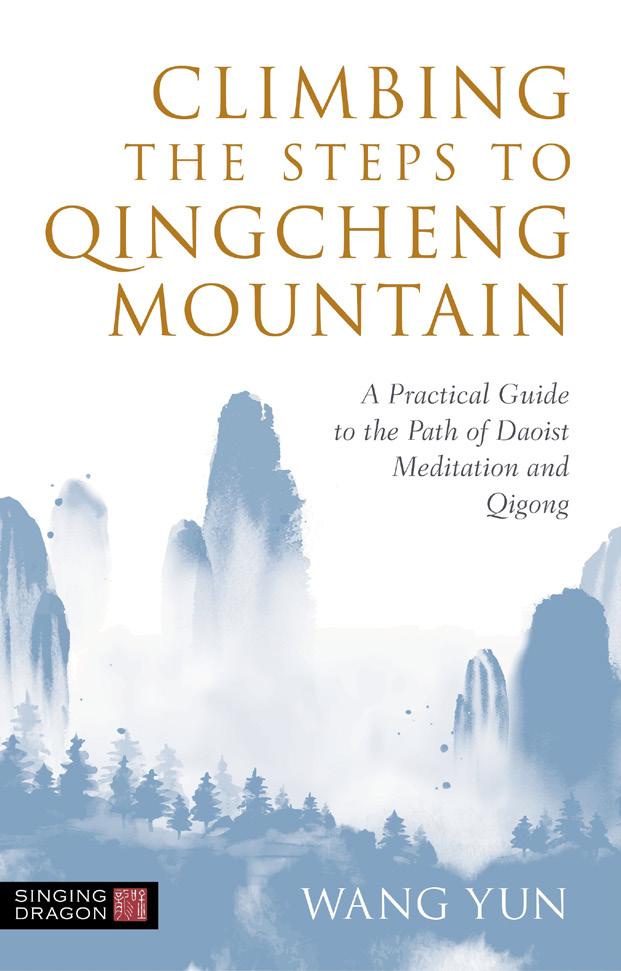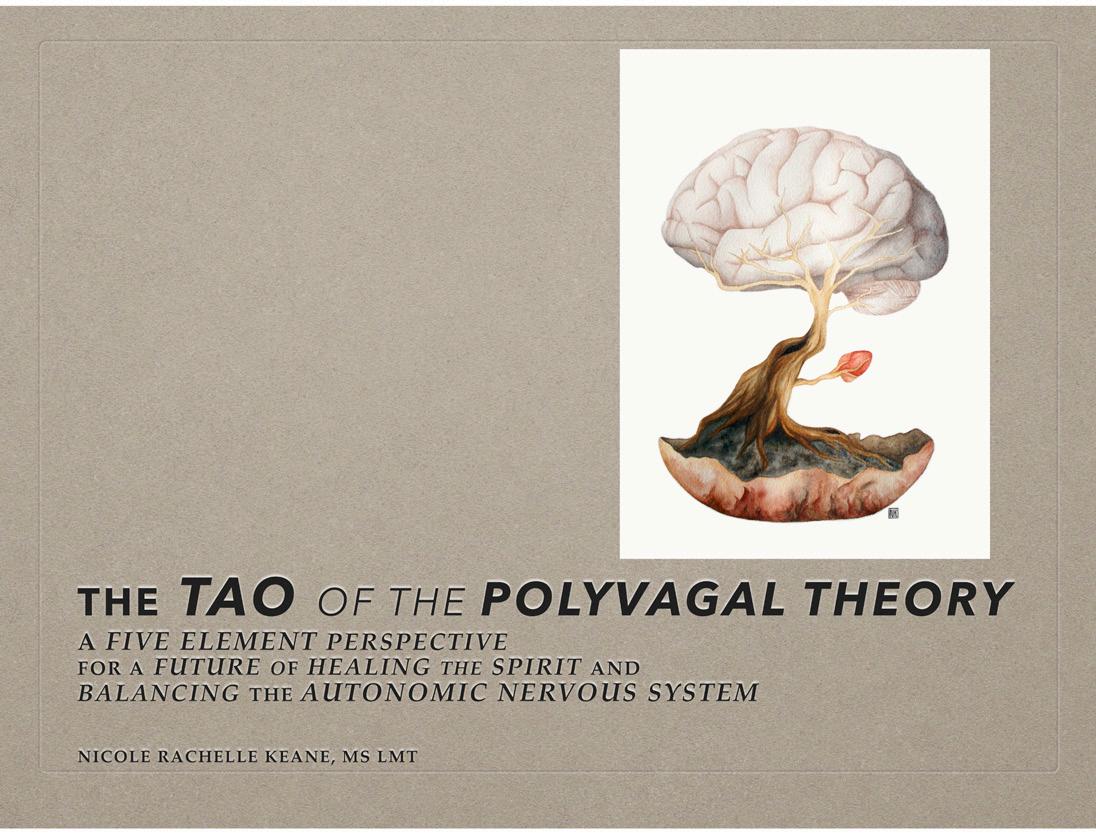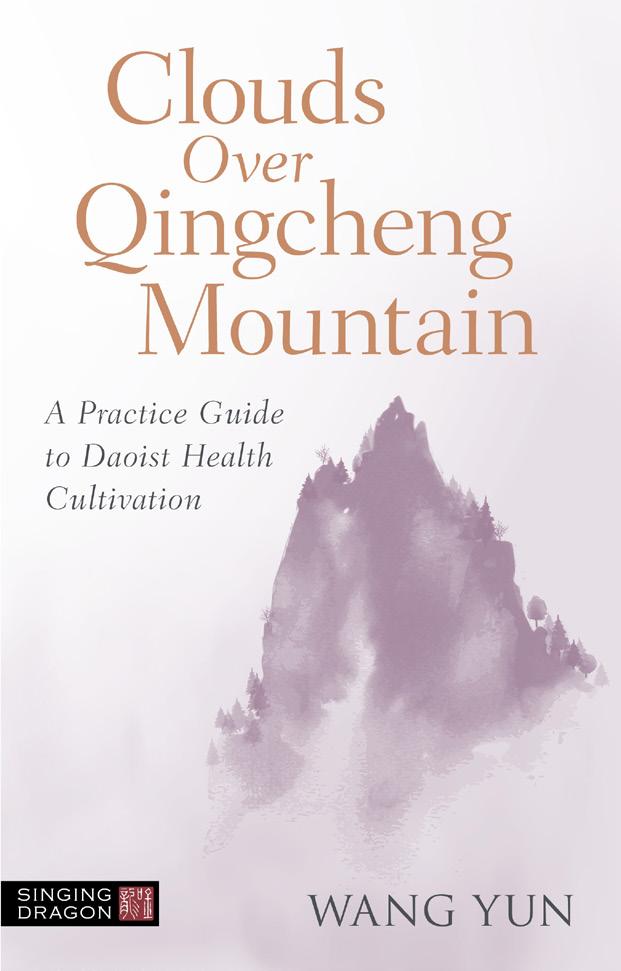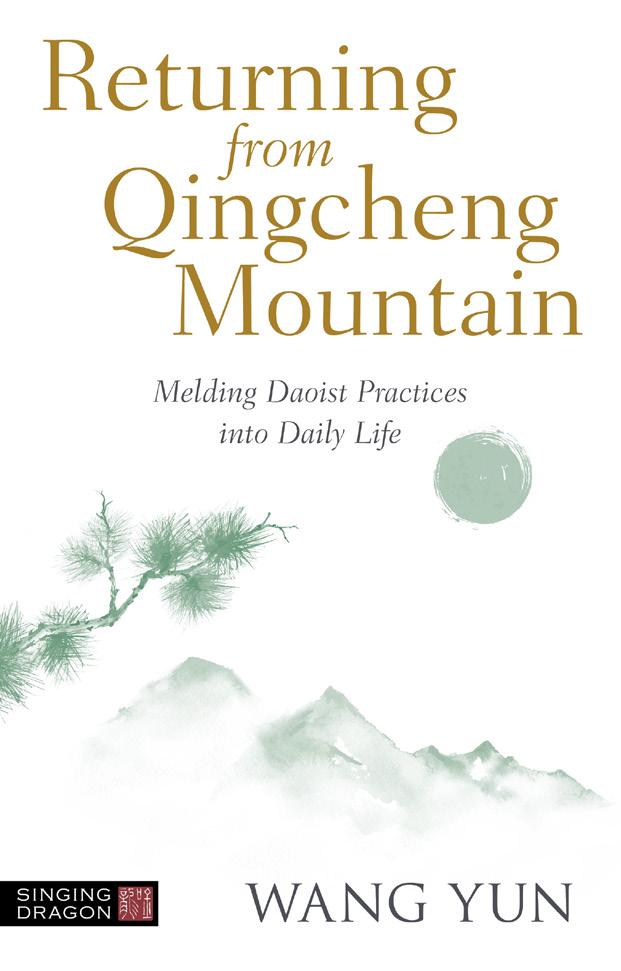
6 minute read
book reviews, PAGES
Book Review
Climbing the Steps to Qingcheng Mountain
Advertisement
Mount Qingcheng, one of China’s mystical mountains, has been the birth place of discovery, realization and preservation of the recipes that stimulate the deep potential of the human body for generations. This is the book of a Daoist master and spiritual guide Wang Yun as a young seeker and tells the tales of his inner journey which now guides the reader on a path of healing, rejuvenation and actualization of the body’s innate potential.
Climbing the Steps to Qingcheng Mountain brings Wang Yun’s knowledge and wisdom to the West for the first time. It serves as a guide to health and spiritual practices including meditation and qigong exercises and is based on centuries of Daoist knowledge and wisdom. · Through tales ranging from Daoist immortals to sleep-deprived salesmen, this book offers guidance to support physical and mental wellbeing in this modern, stressful world.
Climbing the Steps to Qingcheng Mountain
Author: Wang Yun Publisher: Singing Dragon Pages: 242 pages Price: $26.95 ISBN: 1787750760 Website: https://bookshop.org/ shop/DaoDog
The Tao of the Polyvagal Theory
Classical Asian Five Element theory originated within a world very different to what humanity is experiencing at this present moment, as such a shift in perspective must be considered while we are evolving physiologically, as well as a global society, within the structure of modern life.
The Tao of the Polyvagal Theory’ makes a case for the potential for a new level of understanding ancient theory through applied observations of our modern physiology, and the study of how the body internalizes trauma, and manifests disfunction, affecting the way energy moves through the physical tissue systems of the body.
Two new tools of practice are introduced that shift traditional treatment philosophy from a control and manipulation orientation, to a lifting and supporting concept of intervention, assisting with the movement and healing of energy through the whole body system.
Published in August, The Tao of The Polyvagal Theory: A Five Element Perspective for a Future of Healing the

Book Review
Clouds Over Qingcheng Mountain

Immersing the mind with the concepts of the Daoist path of health and immortality, Clouds over Qingcheng Mountain invokes the sacred birthplace of one of China’s mystical mountains that has stimulated both mind and body for generations.
The first volume, Climbing the Steps to Qingcheng Mountain, covered the history of China and Daoism, Clouds over Qingcheng Mountain is more focused in the book’s purpose. Wang Yun places special focus on relaxation and the breath through five sets of foundational yet all-encompassing practices, such as posting, to deepen both themes. He offers tales from his life and journey, along with accessible tools to strengthen both body and qi. Bridging the gap between practical experience and philosophical background, Clouds over Qingcheng Mountain simplifies the complex practices of Daoism handed down by generations of accomplished Masters, and gifts the reader with its most valuable aspects for a modern world.
Clouds Over Qingcheng Mountain: A Practice Guide to Daoist Health Cultivation
Author: Wang Yun Publisher: Singing Dragon Pages: 224 pages Price: $26.95 ISBN: 1787755207 Website: https://bookshop.org/ shop/DaoDog
Spirit and Balancing the Autonomic Nervous System, by Nicole Rachelle Keane, MS LMT, explores the relationship between the Five Elements of Asian medical theory, and the role that trauma plays within the Autonomic Nervous System, through exploration of Dr. Stephen Porges’ groundbreaking, Polyvagal Theory. Within this book the path of an ancient Taoist concept of the Spirit is set into a landscape illustrated with modern views of how the nervous system responds to distress.
Several new concepts are presented on this journey that assist in the evolution of the Five Element practice, and establish new paradigms for how to address emotional and physiological healing of the internal environment. The Tan Cycle and the Yu Angles are presented and described in detail within the chapters, and emphasis is placed on the integrity of yin and yang energies to support, and lift, each other throughout the transformational process of inner balance. “Within the Tan Cycle the traditional placement of the Spirit affiliations is holographically shifted through the elements, to imbue a resonance of support within a system where trauma may have fractured the Spirit soul. I have felt this resonance when working hands on with the body in my healing practice for some time, and was guided to illustrate this framework within the context of a book over the past year,” said author Nicole Keane.
Keane suggests that the Tan Cycle is not intended as a replacement for the Sheng Cycle, the K’o Cycle, or any other tradtionaly recognized theory. Rather, it is an addition to those traditions, providing a reference tool that addresses specifically, the Spirit, and how energy is evolving within the collective over time. The introduction of the Yu Angles is brought forth as a particularly effective method of treating energy imbalance in
• • • CONTINUED ON PAGE 36
Book Review
Returning from Qingcheng Mountain

Functioning as both a dense manual, a detailed roadmap, and an edifying tale of spiritual maturity, this third installment in Wang Yun’s best-selling series brings you rare and authentic Daoism, straight from the culture that gave birth to it. With clear instruction and dozens of illustrated and filmed exercises, you can begin or strengthen your spiritual practice, boost your immune system, and find deep peace of mind, all right from the comfort of your home.
Lofty Daoist philosophy and its practical applications are made easy to grasp and apply through Wang Yun’s effort to translate the old teachings on how to apply the mindset and skills of Daoist meditation, alchemy and qigong to all affairs of life. To this end, Returning from Qingcheng Mountain spins a blend of rare tales from Daoist lore, straightforward explanations of ways to shape the body and mind, and inspiring stories from Wang Yun’s own practice path.
To ‘remain natural in all things’ is the tenet that pervades every page, an eternal invitation toward being at ease, no matter the circumstances. By doing so, one returns to the world out there and handles mundane matters with poise and efficiency, transforming all the challenges and joys and relationships of daily life into a practice, a meditation, and a chance to grow and develop one’s spirit, and by token, the body.
Returning from Qingcheng Mountain: Melding Daoist Practices into Daily Life
Author: Wang Yun Publisher: Singing Dragon Pages: 366 Price: $37.95 ISBN: 1787758966 Website: https://bookshop.org/ shop/DaoDog
• • • FROM PAGE 35
situations where there has been a complex, or chronic, trauma history, as treatment with the Yu Angles offers a “back door” to working with the nervous system, offering a gentler, and more efficient, Way to initiate transformation and the flow of qi within the body and mind.
The Tao of the Polyvagal Theory has the potential to open the door to a deeper understanding of the Polyvagal Theory, and its wide ranging potential for clinical applications in the areas of Asian medical theory, bridging the gap between Eastern and Western medical traditions. For more information and to purchase the eBook or print book, please visit: www.gratitudehealingarts.com/publications.
The Tao of the Polyvagal Theory: A Five Element Perspective for a Future of Healing the Spirit and Balancing the Autonomic Nervous System
Author: Nicole Rachelle Keane, MS LMT Publisher: Gratitude Healing Arts Pages: Print Price: $39.99 (includes free E-book) E-Book Price: $19.99 on sale $14.99 ISBN: n/a Website: www.gratitudehealingarts.com/publications








